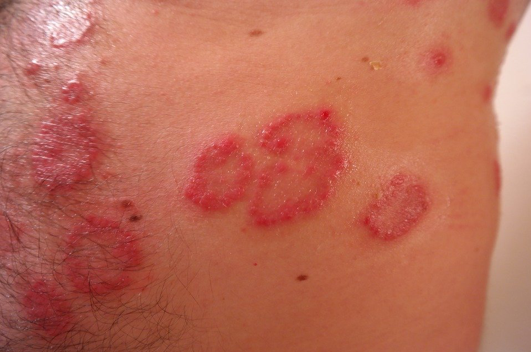Call Today to Schedule an Appointment: 212-319-5282
What Causes Allergic Reactions On Skin?
What are the causes of allergic reactions on your skin? The body has a complex immune system. When the immune system works fine, the cells responsible for immunity will defend you from toxic substances and alert you about the threat. However, when your body’s immune system doesn’t work correctly due to a disease or in normal condition, your immune cells will consider certain substances to be a threat and initiate a reaction. These substances are allergens.
You may react to allergens by consuming, touching, or breathing certain substances, leading to reactions on the skin. According to AAAAI or American Academy of Allergy, Asthma and Immunology, 50 million people suffer from one or another allergic condition in the US. An immunologist can use triggering allergens to test how you react to various substances. They will inject allergens in your body to see a reaction. Then, they diagnose you with an allergy. Furthermore, they also use various allergens for treatment.

(Source)
Causes of Allergic Reactions on Skin
Our body’s skin acts as a defense mechanism and keeps any threats from entering the body. Human skin contains various special cells that provide immunity and protect the skin and the body from viruses, bacteria, and other dangerous pathogens.
When our skin detects an unknown substance that might cause a threat, they react and inflame the infected area. This inflammation is dermatitis or a rash, which can lead to itching and sore.
The reaction depends on the immune cells, the substance, and how they react to something. Sometimes, your infection or health condition leads to allergies. Rashes can be of various types. You may experience irritation, patches or blisters, redness or pain in the infected area. Itchiness can be of various types. It may occur in a specific region or all over the body and can be a symptom of various conditions. Here are some causes of allergic reactions:
1. Nickel
Various items have nickel construction, such as cutlery and jewelry. Nonetheless, many people experience an allergic reaction to this material. When they come into contact with the material, their skin starts to rash and turn red and itchy. You are prone to this allergy if you work as a house cleaner, caterer, retail clerk, hairstylist, or your tasks include interacting with various metal items.
This allergy is non-treatable. Of course, you need to avoid any contact with this material if you know or experience any reaction towards it. If you want to wear nickel-based accessories, add a layer of nail paint to create a barrier between your skin and nickel, avoiding direct interactions.
2. Poison Sumac, Oak, and Ivy
Oil from these plants is very reactive to the skin. The leaves release the oil, urushiol when they suffer from bruising or damage. When your skin comes in contact with the oil, it initiates an allergic reaction by turning itchy and red. Urushiol will cause blisters, bumps, and rashes. You can treat the reaction in various ways. For instance, you can apply a wet cloth, oatmeal bath, hydrocortisone cream, and calamine lotion. However, you should visit the immunologist immediately before the condition gets worse.
3. Medications
You may have noticed that after taking various medications, you experience itchy skin and rashes all over your body. Itchiness and rashes are a result of skin allergic reactions. Some ointments can lead to symptoms like itchiness as well. The allergic reaction indicates that the ingredients are not suitable for your skin type or your allergic condition. Hence, you need to consult an immunologist to determine what items and materials you are allergic to.

(Source)
4. Fragrances
Fragrances are the main components of deodorant, cologne, and perfume. You use such products to conceal unpleasant smells. You can also find this product in soaps and other skincare products. You may find difficulty choosing a product when you have a fragrance allergy, as most products do not include fragrance as an ingredient. Companies even add a small quantity of fragrance in unscented products. Physical therapists and massage therapists are more likely to develop skin allergy to fragrance as they consistently use products containing fragrance.
5. Preservatives
Various ingredients in beauty products are reactive to your skin. Two examples are formaldehydeparabens and releaser. Although these products make the product long-lasting, your skin may be reactive to these products. These products usually present in the following items with the names quaternion-15, PABA, isothiazolinone, Diazolidinyl urea, bromonitropropane:
- Stickers and fake tattoos
- Cosmetic items
- Hair dye
- Sunscreens
- Moisturizers and lotions
- Shampoos and conditioners.
Before buying products, always check the ingredients. If you are not allergic to these types of preservatives, you can rely on these products naturally.
Causes of Allergic Reactions on Skin: Conclusion
Allergists & immunologists have education and practice in handling conditions related to the immune system, such as allergic reactions. They can diagnose you and check for which items trigger an immune response and lead to skin reactions.
Are you looking for a top immunologist in New York City? If so, give us a call at 212-319-5282. Visit Dr. Boyan Hadjiev, better known as Dr. Sneeze, for a consultation on treating & controlling the allergic reaction on your skin.
Boyan Hadjiev, MD
30 East 40th Street
Suite 1200
New York, NY 10016
212-319-5282
Sources
https://www.healthline.com/health/allergies/allergic-reaction#causes
https://www.webmd.com/allergies/skin-allergies-causes
https://www.medicalnewstoday.com/articles/311473#causes
Serving all of New York City and the Tri State Area including Zip Codes: Top Allergist NYC Midtown, Chelsea and Clinton: 10001, 10011, 10018, 10019, 10020, 10036 | Gramercy Park and Murray Hill: 10010, 10016, 10017, 10022 | Greenwich Village and Soho: 10012, 10013, 10014 | Lower Manhattan: 10004, 10005, 10006, 10007, 10038, 10280 | Lower East Side: 10002, 10003, 10009 | Upper East Side: 10021, 10028, 10044, 10128 | Upper West Side: 10023, 10024, 10025
